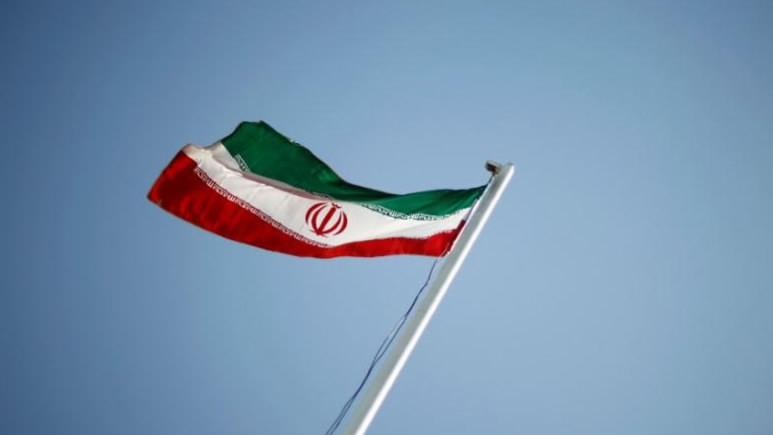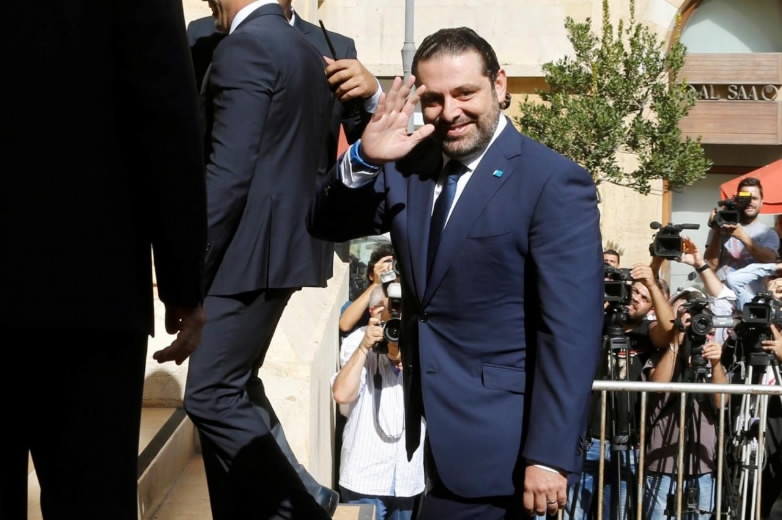
Politics
20:59, 05-Nov-2017
Iran: al-Hariri's resignation aimed to create tension in region
CGTN

Iran's Foreign Ministry said that the resignation of the Lebanese Prime Minister Saad al-Hariri is intended to create tension in both the country and the region, Tasnim news agency reported on Sunday.
Foreign Ministry Spokesman Bahram Qasemi said in a statement that al-Hariri's "sudden resignation and the announcement of his resignation in another country is regretful and at the same time surprising."
He said it shows al-Hariri is playing in a field "prepared by those who wish ill for the region," adding that the winner of this game are the Arab countries and Israel, whose survival is "contingent upon tension in regional Muslim countries," Qasemi was quoted as saying.
At a time when ISIL and other terrorist groups in the region are coming to an end, efforts should be made to calm the situation and to fix the damage by terrorists trained and sponsored by the United States and its regional allies, he said.

Lebanon's former Prime Minister Saad al-Hariri gestures as he walks into the parliament building, during the presidential elections in parliament, in downtown Beirut, Lebanon, on October 31, 2016. /Reuters Photo
Lebanon's former Prime Minister Saad al-Hariri gestures as he walks into the parliament building, during the presidential elections in parliament, in downtown Beirut, Lebanon, on October 31, 2016. /Reuters Photo
In the meantime, Secretary of Iran's Expediency Council Mohsen Rezaei on Sunday described the resignation as "a new adventurist scenario in the region [by al-Hariri], on behalf of the United States, Saudi Arabia and Israel," the semi-official Mehr news agency reported.
"Saad al-Hariri, who had taken office a few years ago through national unity dialogue with Lebanese President Michel Aoun and Hezbollah and had experienced a peaceful, stable, and economic term in Lebanon, made a surprise resignation under Saudi Arabia's pressure," Rezaei said.
The new developments indicate the start of a new adventure by Saudi Arabia, Israel and the United States, he said, adding that the problem with this "sinister triangle" is that their policies in the region have failed and even their regional friends are approaching the Islamic republic.
On Saturday, al-Hariri announced his resignation, claiming that it stemmed from a "rejection of Iran's political over-extension in the region."
He made the announcement in an unexpected move in a televised statement he read from the Saudi capital Riyadh.
His "country would be able to overcome political influence exerted by internal and external forces," he said, adding that the "Islamic Republic [of Iran] has a desire to destroy the Arab world and has boasted of its control over the decisions of Arab capitals."

Lebanon's Prime Minister Saad al-Hariri is seen at the governmental palace in
Beirut, Lebanon, on October 24, 2017. /Reuters Photo
Lebanon's Prime Minister Saad al-Hariri is seen at the governmental palace in Beirut, Lebanon, on October 24, 2017. /Reuters Photo
"Iran's hand would be cut off," al-Hariri said, adding that "Lebanon would not play a role in destabilizing the region."
He also implicated Lebanese Hezbollah Shiite group in what he views as Iran's race to regional domination.
The Iranian spokesman rejected al-Hariri's comments against Iran, saying that his accusations are unfounded, and the resignation "is a new scenario to create new tension in Lebanon and in the region."
Iran has always wanted to see peace and stability in the Middle East countries and has defined its interests based on the security, stability and economic growth of all neighboring and regional countries, Qasemi stressed.
"Accordingly, top of Iran's regional policies is to fight insecurity and instability as well as extremist and terrorist groups to ensure tranquility for all countries," he added.
The Islamic Republic of Iran has always respected Lebanon's independence, stability and tranquility, and has expressed its readiness to cooperate with the Lebanese government in areas of mutual interest, the spokesman said.
Source(s): Xinhua News Agency

SITEMAP
Copyright © 2018 CGTN. Beijing ICP prepared NO.16065310-3
Copyright © 2018 CGTN. Beijing ICP prepared NO.16065310-3